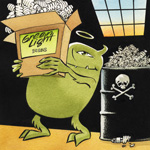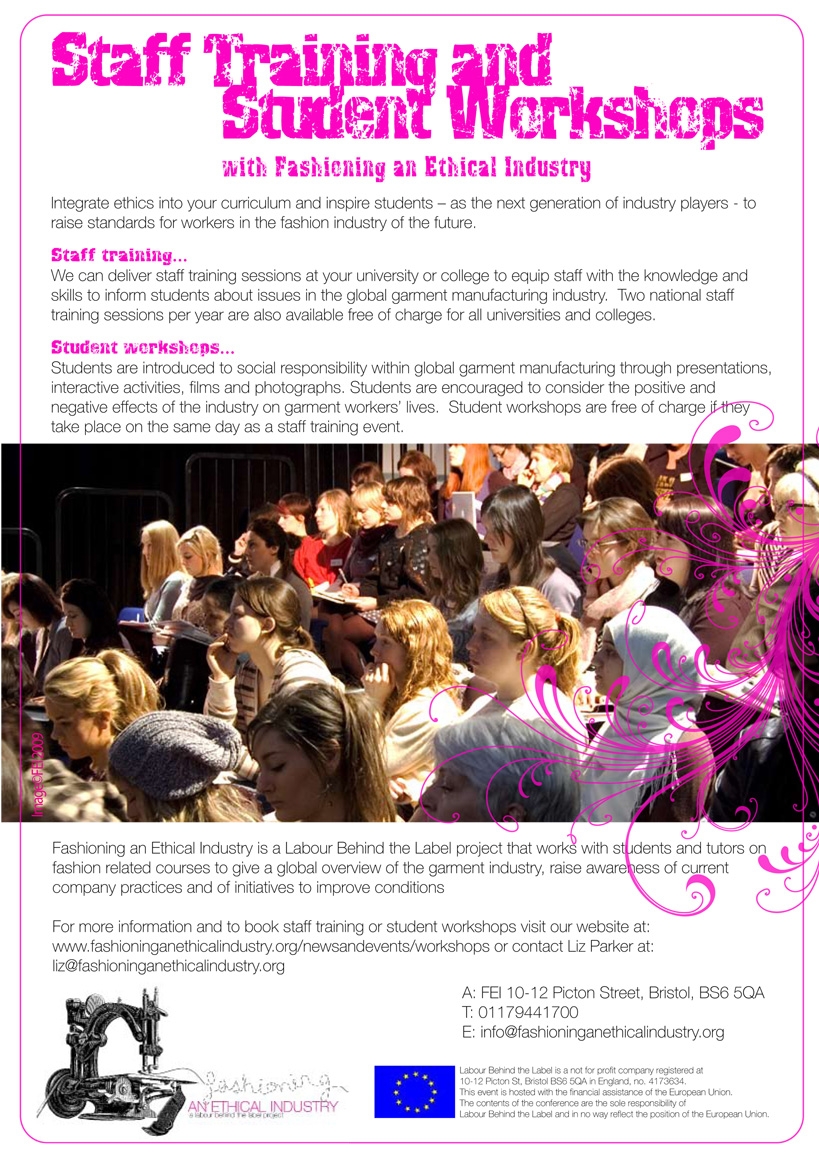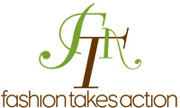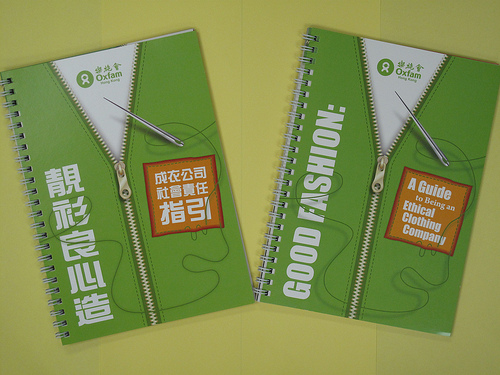
TerraChoice: Sin of the Hidden Trade-off
Back in April, TerraChoice released their second report on greenwashing, titled “The Seven Sins of Greenwashing.” The first report, “The Six Sins of Greenwashing,” came out in 2007. The recent report offers new stats and, of course, the added seventh sin. Unfortunately, fashion, textile and apparel products were not included in the TerraChoice research. Don’t let this fool you; greenwashing is rampant in the fashion, textile and apparel industry.
Joel Makower from Greenbiz offers a great commentary on the report, outlining where, and how, it may have fallen short:
“Late last year, TerraChoice repeated the process, though extended its reach: Its researchers were sent into retailers in the U.S., Canada, the U.K., and Australia. The track record was slightly better: 25 products found in North American stores were deemed “sin-free,” says TerraChoice. The trends were similar in the other countries.
At first glance, those findings seem dire and depressing. But much like some of the eco-claims themselves, TerraChoice’s report doesn’t hold up to scrutiny. What’s really going on here? Are manufacturers truly that overwhelmingly misleading? Is just about everyone out there pulling the green wool over our collective eyes? Or has TerraChoice set a bar so unreasonably high that even the most well-intentioned companies can’t clear it, and lumped the imperfect claims together with the truly bad ones in order to make its point? In other words, who’s greenwashing who?
Truth is, there’s a little of each going on.
First, honor is due. TerraChoice has performed a public service here, calling attention to the fact that so many companies are making claims that are anything from fuzzy to fraudulent. The groundwork they’ve done here is invaluable, even if the conclusions they’ve drawn from it are, in my opinion, a bit misleading.”
Read the rest of his article here. Make sure you check out the full TerraChoice report.
For more information, listen in on this Greenbiz.com Podcast, “Lies, Damn Lies, and the Seventh Sin of Greenwashing,” where Makower interviews Scot Case, Vice President of TerraChoice on the issue of greenwashing and the 2009 report.
Stay informed!
Source: TerraChoice, Joel Makower, and Greenbiz.com






